Expert Focus: Examining and strengthening U.S. care infrastructure

Equitable Growth is committed to building a community of scholars working to understand how inequality affects broadly shared growth and stability. To that end, we have created the monthly series, “Expert Focus.” This series highlights scholars in the Equitable Growth network and beyond who are at the frontier of social science research. We encourage you to learn more about both the researchers featured below and our broader network of experts.
The care economy in the United States provides support to many workers across the economy, be it in the form of child care and early childhood programs, paid family and medical leave, or long-term and elder care. At the same time, the lack of federally mandated access to these programs in the United States leaves millions more workers struggling to manage their care needs and responsibilities, leading to lower productivity, wage penalties, and work-life conflicts that are incredibly difficult to navigate.
The care industry is rife with longstanding challenges and deficiencies that existed long before the onset of the coronavirus pandemic, which has only served to deepen these cracks in care infrastructure, particularly along gender and racial lines. As President Joe Biden pushes for Congress to pass his infrastructure and jobs plan to boost the economy and jumpstart the recovery from the coronavirus recession, it is vital that policymakers address not only physical infrastructure but also care infrastructure needs.
In this installment of Expert Focus, we highlight scholars investigating the U.S. care economy. These researchers are examining care infrastructure and policies, and looking at the economic, social, and health impacts of these programs on workers, their families, and their communities. Their findings can guide policymakers who are keen to make much-needed public investments that support workers and the overall economy alike at this pivotal moment for our economic recovery.
Eric Chyn
Dartmouth College
Eric Chyn is an assistant professor in the Department of Economics at Dartmouth College and a faculty research fellow at the National Bureau of Economic Research. He is a labor and public economist, and his recent research looks at the effects of government programs and policies on children and child well-being, and the importance of a child’s environment. He also studies the short- and long-run impacts of additional medical care for children with low birth weights, looking at their health and educational outcomes as well as their future use of income-support and safety net programs. His findings have been covered in outlets such as The Atlantic, Harvard Business Review, and The New York Times. In 2017, Chyn and Justine Hastings, a professor of economics and international and public affairs at Brown University, received an Equitable Growth grant to study the impact of paid maternity leave on mothers and their children in Rhode Island.
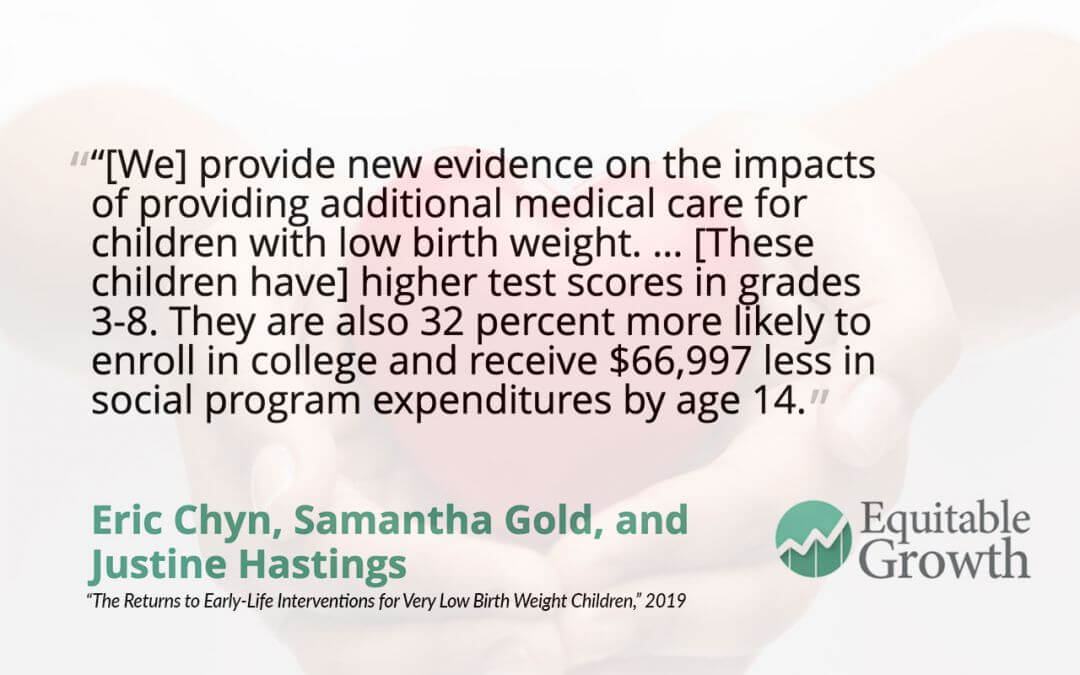
Maya Rossin-Slater
Stanford University
Maya Rossin-Slater is an economist and an associate professor of medicine at Stanford University’s School of Medicine. Her research focuses on health, public, and labor economics, and specifically on maternal and child well-being, family structure and behavior, and policies targeting disadvantaged populations. Rossin-Slater is well known for her contributions to the literature on paid family and medical leave in the United States, including from research funded by two Equitable Growth grants (in 2016 and in 2019). She also co-authored a chapter of Equitable Growth’s Vision 2020: Evidence for a stronger economy project, urging policymakers to enact paid leave programs across the United States and providing evidence of the economic benefits such a guarantee would bring. Rossin-Slater has written on a number of other issues related to care infrastructure, including the impact of fathers’ leave-taking in the months following childbirth on mothers’ physical and mental health, as well as other topics, such as the effects of school shootings on adolescents’ mental health and future economic outcomes.
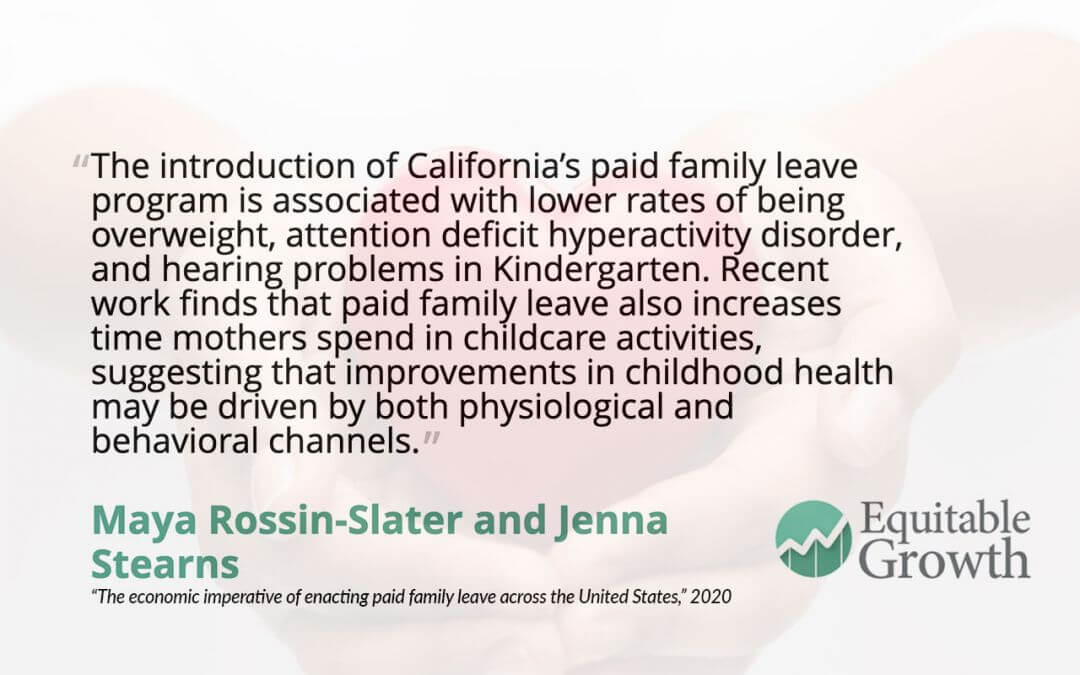
Bweikia Steen
George Mason University
Bweikia Steen is an associate professor of education in the Early Childhood Education Program at George Mason University. Her research interests include promoting social-emotional and academic excellence among children of color and children who have experienced poverty during the early years of their education, and she is a researcher and advocate of effective strategies for best meeting the needs of families of color. She also focuses on promoting healthy transitions for children entering Kindergarten, addressing the literacy achievement gap starting in preschool, and adapting early childhood education classrooms to be more inclusive for transgender youth. During the coronavirus pandemic, she has written about navigating virtual schooling for young children and creating an inclusive and equitable climate in early childhood and elementary school settings.
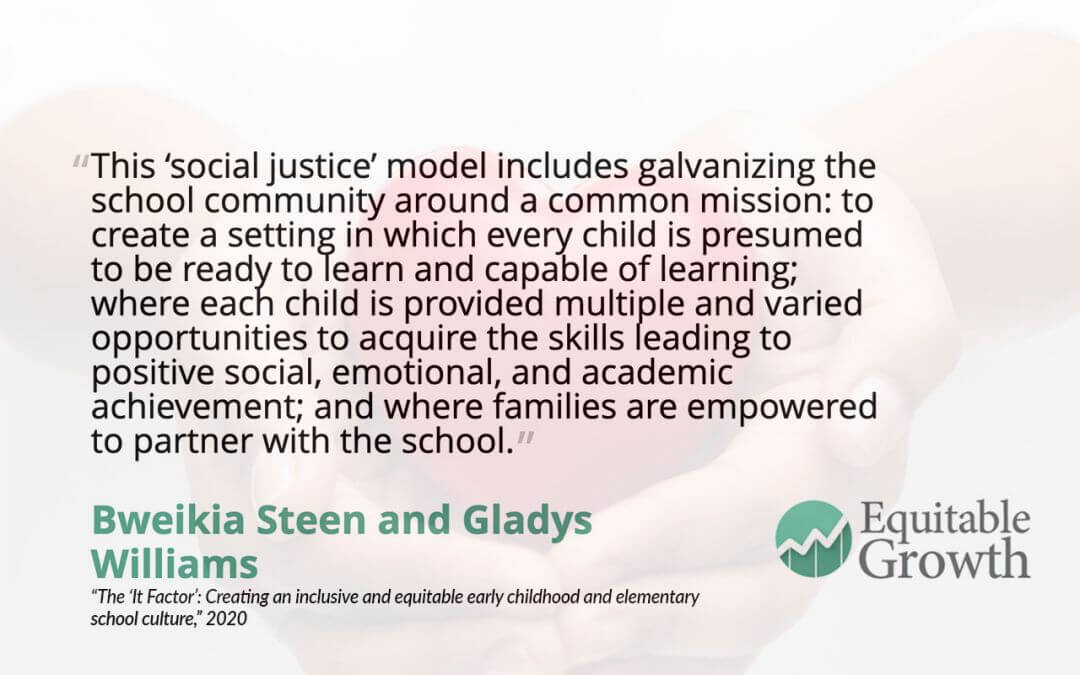
Jane Waldfogel
Columbia University
Jane Waldfogel is a professor of social work and public affairs at Columbia University, co-director of the Columbia Population Research Center, and a visiting professor at the Centre for Analysis of Social Exclusion at the London School of Economics. She is a leading authority on the impact of public policies, including paid family and medical leave, universal preschool, and child allowances, on child and family well-being. Waldfogel—who has received three Equitable Growth grants, including one in 2020 to study access to and use of paid leave during the coronavirus pandemic in New York City—is the author of six books on a range of social mobility topics, from child poverty to inequality’s impact on test scores and the achievement gap. She has spoken and been cited extensively since President Biden’s American Rescue Plan passed earlier this year with an extension of the Child Tax Credit, which is expected to cut U.S. child poverty in half. Recently, she released an NBER working paper with findings from a 2016 Equitable Growth grant on the impact of paid family leave on employers in New York state.
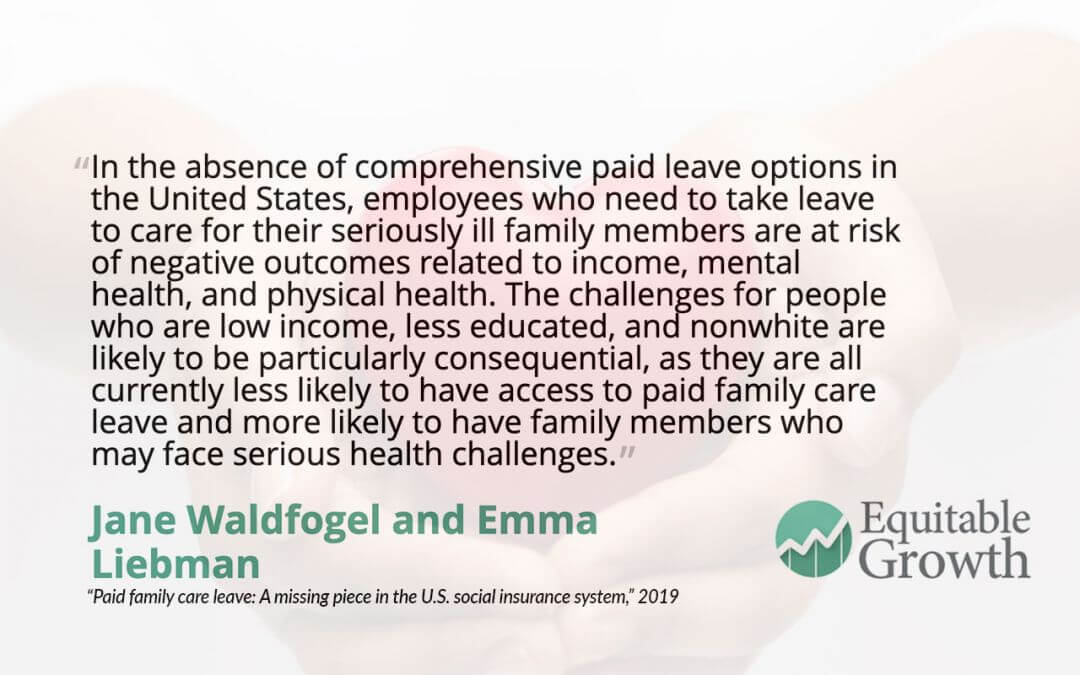
Nicolas R. Ziebarth
Cornell University
Nicolas Ziebarth is a tenured associate professor in the Department for Policy Analysis and Management at Cornell University and the associate director of the Cornell Institute for Healthy Futures. He studies the interaction of social insurance systems with labor markets and population health, covering such topics as health insurance, the interaction between the environment and health, health inequality and measurement, and spending on health care. He is an international expert on the economics of sick leave, and his research in this area is cited as a reason that the Families First Coronavirus Response Act, passed by Congress in early 2020 in response to the pandemic, included emergency sick leave. A study he co-authored in October 2020 shows that these sick leave provisions successfully flattened the curve of coronavirus infections in the United States. Ziebarth received funding last year from Equitable Growth to study the impact of state- and city-level paid leave mandates on employer-provided leave.
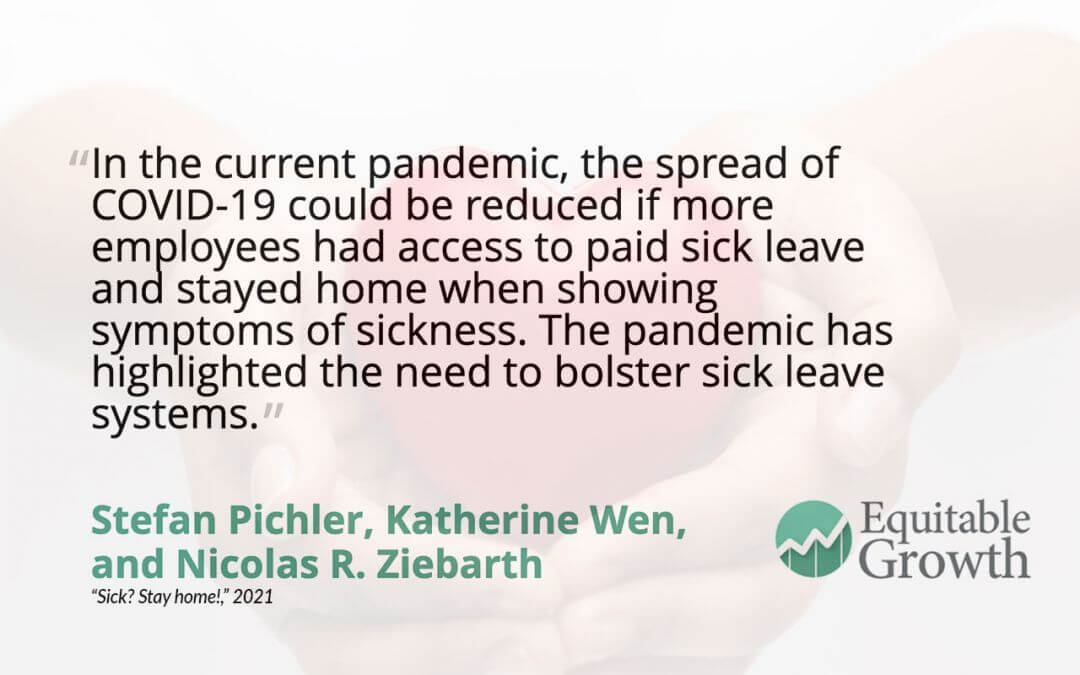
Equitable Growth is building a network of experts across disciplines and at various stages in their career who can exchange ideas and ensure that research on inequality and broadly shared growth is relevant, accessible, and informative to both the policymaking process and future research agendas. Explore the ways you can connect with our network or take advantage of the support we offer here.





